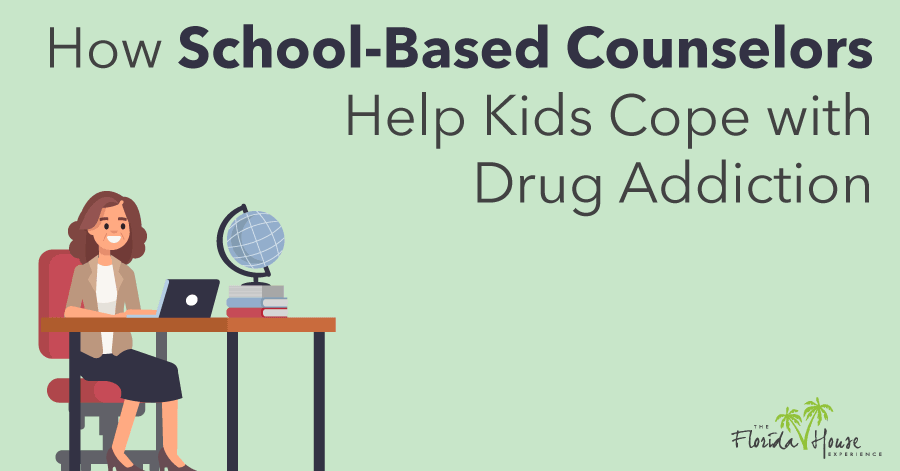
Addiction in America is an exceptionally complex issue, especially in the ways that it affects the families wrapped up in the chaos. It’s true that no one is more impacted by drug-related trauma at home than children, and nowhere is this more obvious than in America’s schools.
According to NPR, schools have become so under-equipped to help kids of addiction that in October of 2018, Congress allocated $50 million for schools to use on programs and professionals targeted towards addressing the unique needs of these communities.
But what are these needs, and how can school counselors be called upon to help children with such complex needs?
The Scope
The first step to understanding the inherent challenge associated with supporting kids with addiction at home is to understand the scope of the problem. According to Psychology Today, an estimated one in five American children live in a home with at least one parent struggling with a substance use disorder (SUD).
The U.S. Department of Health and Human Services reported that drug abuse was a major factor in 34 percent of cases of children being removed from their homes in 2016, a year in which 92,000 children ended up in foster care as a result of one or both parents struggling with drugs.
Children living in homes with addicted parents face a series of risks:
- They’re statistically more likely to abuse substances in their own futures.
- They’re more likely to be abused or neglected at home.
- They’re less likely to have parents that oversee their development, physically, emotionally and mentally.
This is without mentioning the damage that can occur when pregnant mothers use drugs and alcohol. A study published in Forensic Science International reported that 5.5 percent of mothers admitted to abusing an illicit substance while carrying their child.
This can lead to unsuccessful pregnancies and stillbirths, but in the cases where viable deliveries are achieved, it can result in a variety of developmental disabilities that make it more difficult for children to succeed in the education system at the same rate as their peers.
How Can School Counselors Help?
Most school counselors have a workload that limits the ways and breadth in which they’re able to help any students, but let’s imagine that there are no time or money constraints involved. Here are a few ways school counselors and administrators can provide for the unique needs of children with addiction in their home life:
- More constant attention and guidance. Children raised in homes impacted by addiction are often not much different from children with absent parents. This is to say that more careful oversight, at least in the beginning, is key to creating positive outcomes.
- Attempts to keep these kids from using. According to a report published by the American Counseling Association, counselors need to help mitigate the inherent risks that children who come from addiction face: namely, the heightened risk of using substances themselves. This can be done by talking to at-risk students about potential triggers and developing positive behaviors to cope.
Often, however, the students who need the most guidance don’t just jump out at the people trained to help. One of the skills that counselors need to build is the ability to identify who the at-risk populations are in their schools and then intervene before the risk can grow.
The Verdict
It’s clear that children who come from homes affected by addiction need more direct and consistent attention from counselors, teachers and other embedded professionals in the education system. The question is whether it’s feasible.
The answer is that if we make an effort to ensure that professionals in education are adequately trained to address the unique needs of students who come from trauma, it can make a difference in their ability to succeed in school.
When it comes to addiction, however, society can do more than just make the effort to better prepare counselors and school administrators to give students the support they need. We need to make it easier to access effective treatment so fewer children have to overcome these obstacles just to make it onto a level playing field with their classmates.
That’s what we aim to do at FHE Health. If you or a loved one are struggling with addiction, give us a call and learn about your treatment options.






